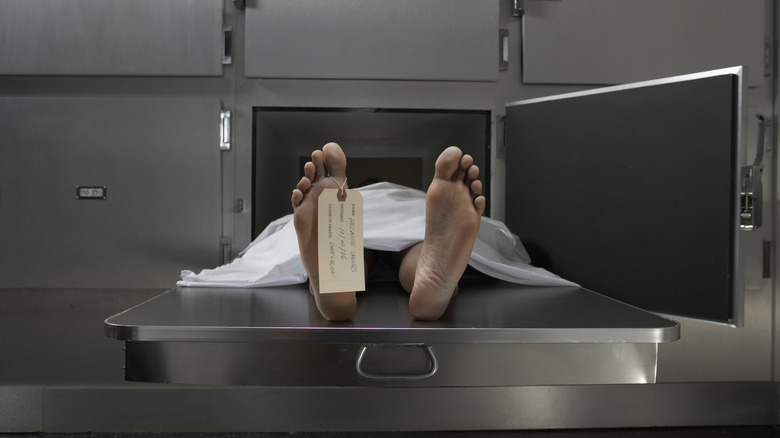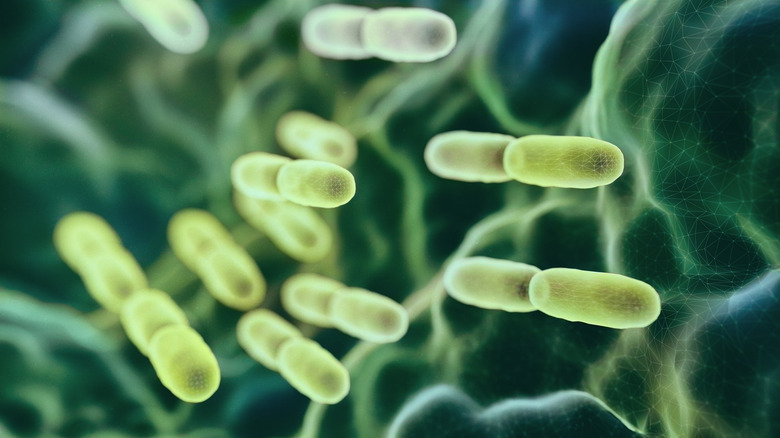The Strange Fart Phenomenon That Happens To Your Body After Death
We may receive a commission on purchases made from links.
Movies have a way of desensitizing you to what happens to your body when you die. From the walking dead that supposedly come alive after a few minutes to ghosts and ghouls associated with death, it's easy to get lost in all of it.
But death, in real life, is a process. A complex and long process. When your heart finally stops beating, your brain stops functioning too. This is why some experts like to think that people actually die twice when the end comes. What follows after this is related to how blood, which now doesn't have anywhere else to go, pools in certain places of your body, leading to skin discoloration. Your muscles stiffen during what is known as "rigor mortis" and your body cools down when what is known as "algor mortis" sets in. "Mortis" means "of death" in Latin and the words preceding it refer to the different physiological changes one can observe in a dead body, like "rigor," which means "stiffness," and "algor," which means "coldness".
Turns out, there's yet another strange thing that happens to someone when they die — they could fart — and the smell can be particularly unpleasant.
Farting after death: Why it happens
Farting after death is associated with the decomposition process that occurs when someone dies. The same gut microbiota that helped keep you healthy while you were alive will literally start eating your body from the inside out.
As explained by a forensic pathologist and co-author of "Working Stiff: Two Years, 262 Bodies, and the Making of a Medical Examiner," Dr. Judy Melinek (via Men's Health), when the bacteria (unchecked by a functioning immune system) invade your bloodstream and feast on tissues inside of you, they end up releasing gasses that have a stench. The built-up gas in your intestines can escape your orifices — your mouth and rear end, in particular — and cause a bad smell, often referred to as the smell of death.
"The smell is like flatulence or vomit mixed with decomposition," per Dr. Melinek. Scientists also believe that not all of the gases associated with decomposition are bad-smelling, like hexanal and butanol for instance. Some of the gases associated with death and decomposition include hydrogen sulfide, methane, cadaverine, putrescine, ammonia, dimethyl disulfide, and trisulfide. That being said, gases are not the only thing that causes a foul odor when it comes to death.
Other bowel-related phenomena associated with death
It is not uncommon for people to lose bladder and bowel control in the final moments before death. This is a natural process of your body becoming weaker and your muscles not working as efficiently as they did when you were healthy.
Immediately after death, your muscles completely relax and this can result in people urinating and defecating right after death. When the sphincters responsible for keeping your pee and poop inside aren't working anymore, you can expect to see some of it come out, but according to the director of Seattle-based eco-friendly funeral home Elemental Cremation and Burial, Jeff Jorgenson (via Women's Health), this is not going to mean a great big volume of excrement. As we said before, your muscles and associated bowel systems aren't actually in working order to be able to push everything out successfully.
Unpleasant as the topic of death is, understanding what happens to your body as you're slowly moving from this terrain to the next and knowing how intricately the human body is designed helps us see how even the microorganisms living inside of us have a job to do — both during life and in the end.



